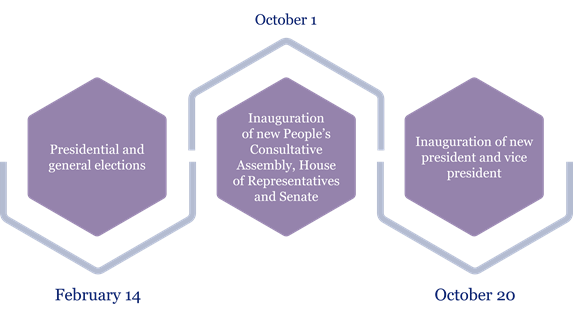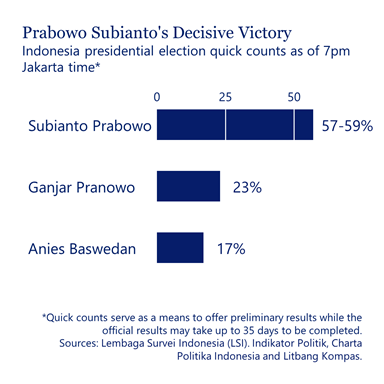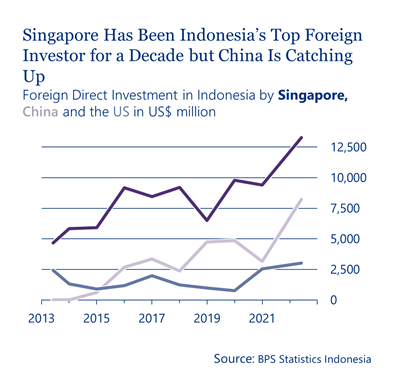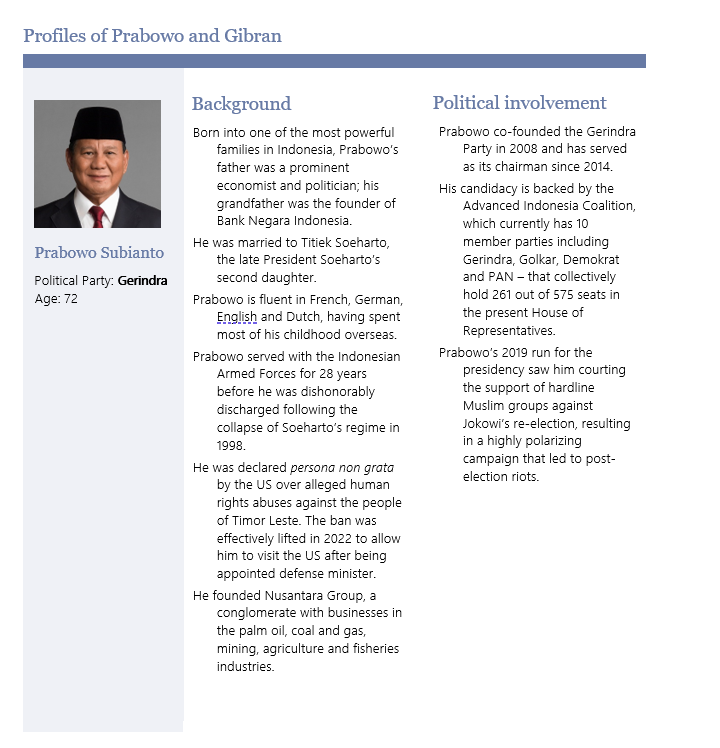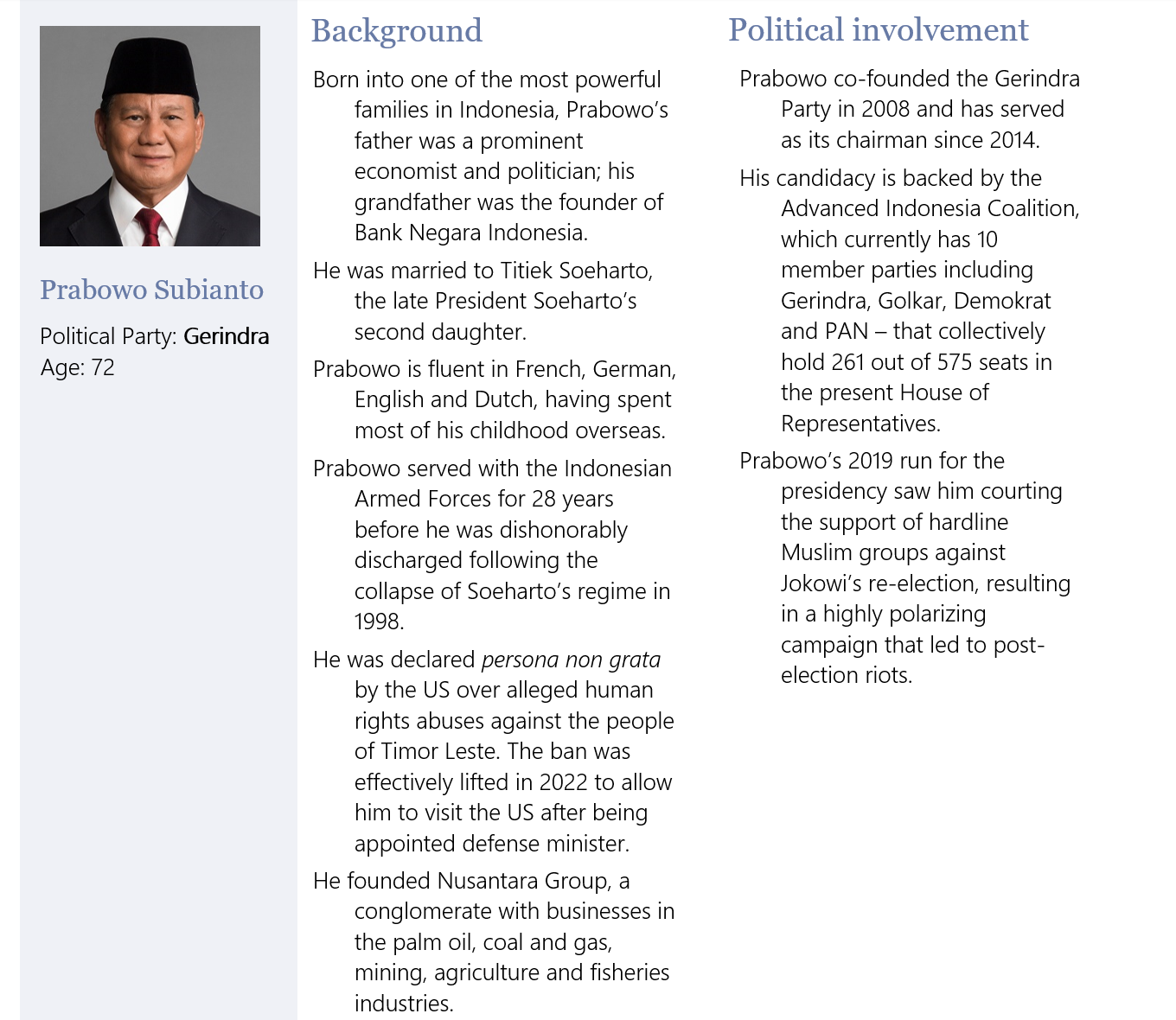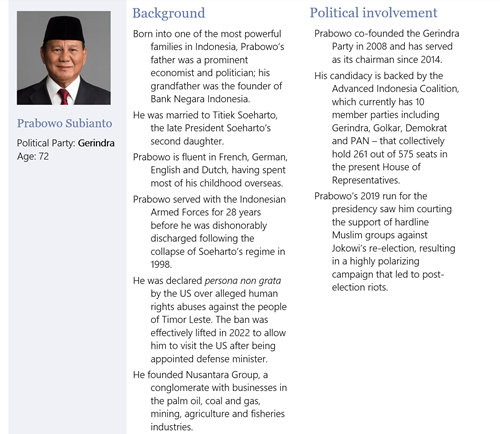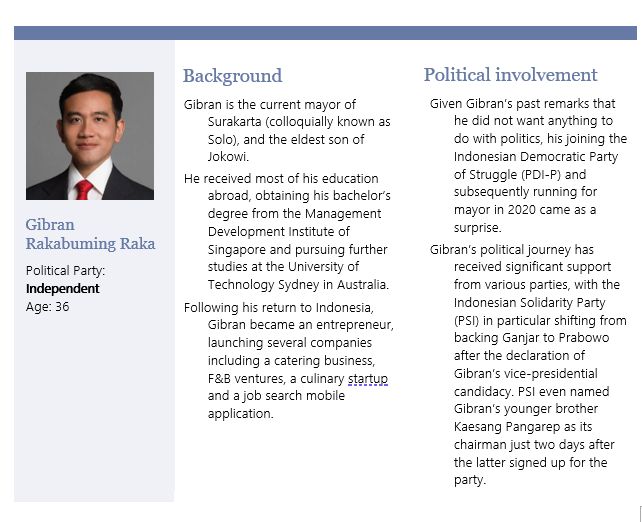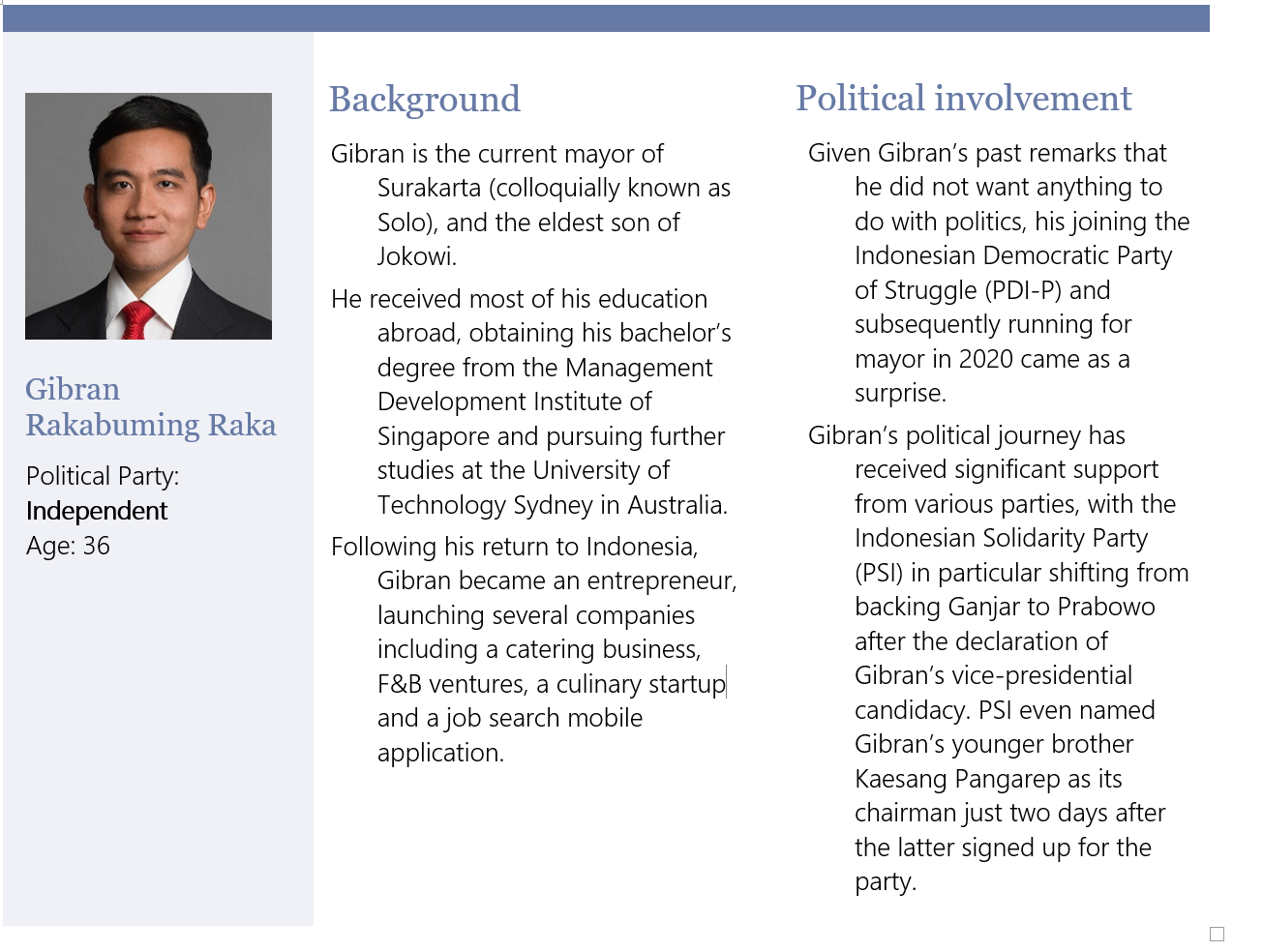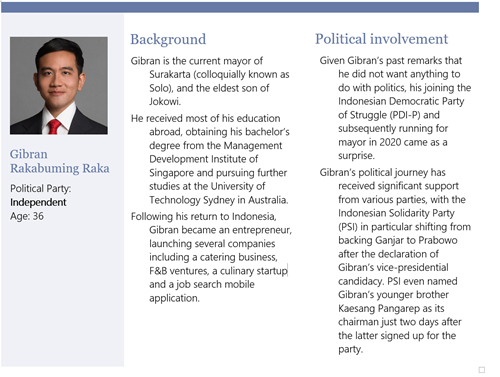Prabowo’s transformation
A longtime figure in Indonesian politics – Prabowo ran for the vice presidency in 2009 and the presidency in 2014 and 2019 – Prabowo has successfully transformed himself from an opponent of Jokowi to an ardent advocate of policy continuity. He has rebranded his image from a ruthless military strongman with a questionable human-rights record to a cute, cat-loving grandfather, and has traded in his usually divisive rhetoric for a more inclusive message. To align himself even more firmly with Jokowi, he leveraged the president’s desire to preserve his legacy by selecting Jokowi’s son Gibran Rakabuming as his vice-presidential running mate. According to polls, Prabowo’s support from those younger than 42, many of whom are too young to remember the accusations against Prabowo, is more than 60%.
Prabowo’s popularity began to stagnate a few weeks before the election as criticism mounted against Jokowi’s perceived intervention in the electoral processes. The pushback grew after the Constitutional Court declared Gibran eligible to run as vice president even though he does not fulfill the minimum age requirement of 40. The court, chaired by Gibran’s uncle, granted an exception to Gibran who turned 36 on October 1, 2023.
As the sitting president’s support for Prabowo and Gibran became more visible recently through the use of social assistance (bantuan sosial or “bansos”) funded by the state budget to garner support for the two, his perceived lack of neutrality has raised concerns around the corrosion of democracy and the advancement of dynastic politics in Indonesia, resulting in a decline in support for Jokowi, and by extension, the Prabowo-Gibran pairing.
Looking ahead
The General Elections Commission has said official election results will be released by March 20 at the latest. Ganjar and Anies have yet to concede defeat, urging the public to wait for the final results. Prabowo’s victory is likely to face challenges by his opponents, particularly in light of the debate over Gibran’s eligibility – a spokesman from Anies’ campaign team claimed that the team has collected evidence of electoral fraud. The perceived erosion of democratic practices and political integrity will likely fester and lead to further controversy and distraction. Political alliances and dealmaking will also take shape in the coming months, determining who will have roles within the new cabinet and how much support Prabowo will have within the DPR to push through his policies.
All eyes will be on the continuing influence of Jokowi, the pivotal figure in this election, and the formation of Prabowo’s first cabinet, particularly the new economic team handling finance, investment, trade, industry, and energy & mineral resources.
Timeline
